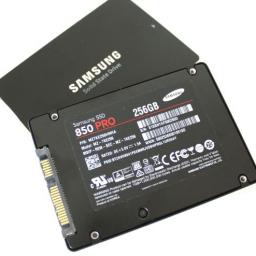
Anandtech
reviewed the Samsung 850 Pro SSD that features a new 3D storage structure.
For years it has been known that the scalability of traditional NAND is coming to an end. Every die shrink has been more difficult than the previous as the endurance and performance have decreased with every node, making it less and less efficient to scale the size down.
By stacking transistors (i.e. cells when speaking about NAND) vertically, Samsung is able to relax the process node back to a much more convenient 40nm. When there are 32 cells on top of each other, it is obvious that there is no need for a 10nm-class node because the stacking increases the density, allowing production costs to scale lower. As we have seen with the history of NAND die shrinks, a higher process node provides more endurance and higher performance, which is what the 850 Pro and V-NAND is all about.
Although launching with a slight cost premium over traditional NAND, the benchmarks show that this drive is "without a doubt the best drive in the market" and the future of solid state drives.
 Anandtech reviewed the Samsung 850 Pro SSD that features a new 3D storage structure.
Anandtech reviewed the Samsung 850 Pro SSD that features a new 3D storage structure.
http://en.wikipedia.org/wiki/NAND_gate talks about the digital logic circuit, and http://en.wikipedia.org/wiki/Flash_memory shows how it's used in solid state storage. OK, now I get it.
Looks like this would make devices thicker, no?